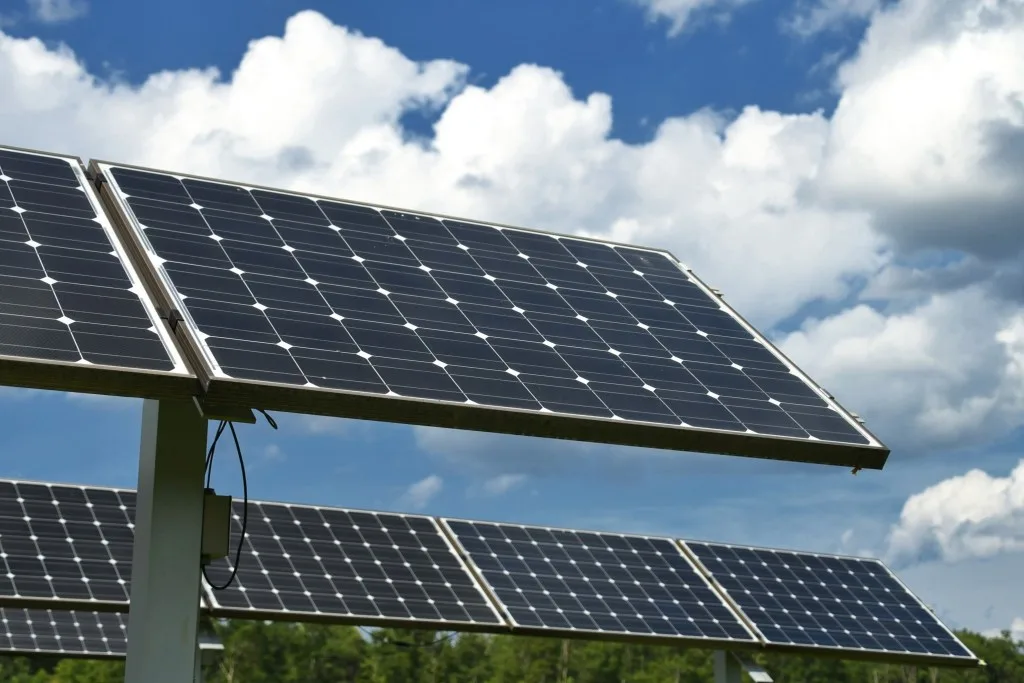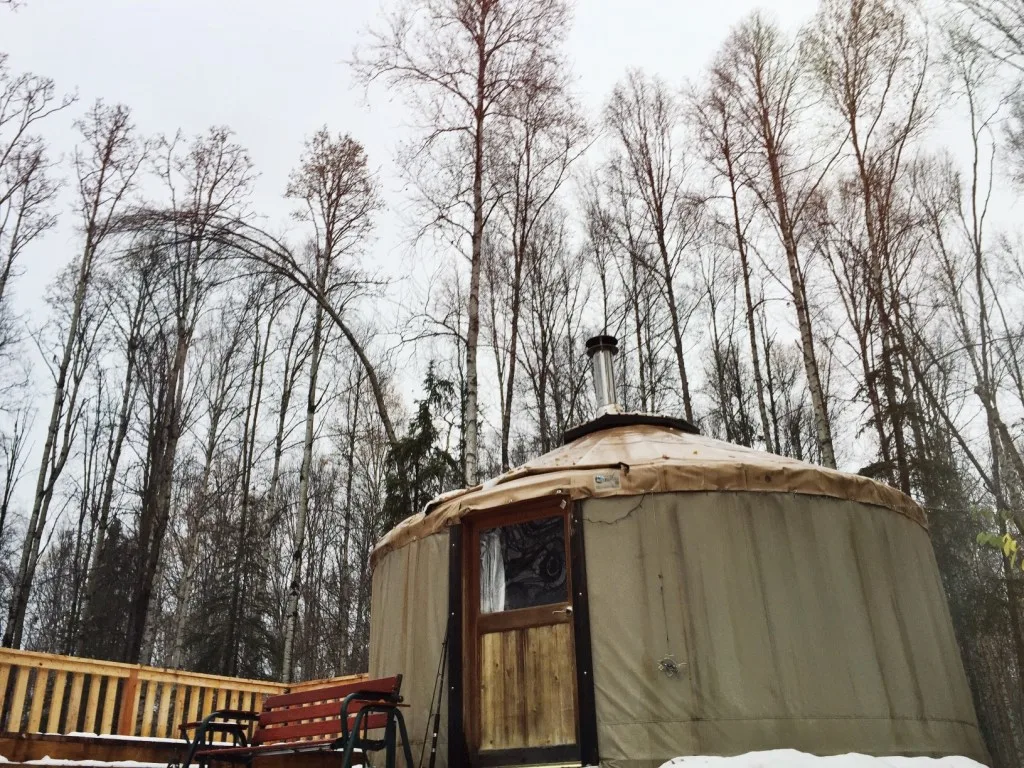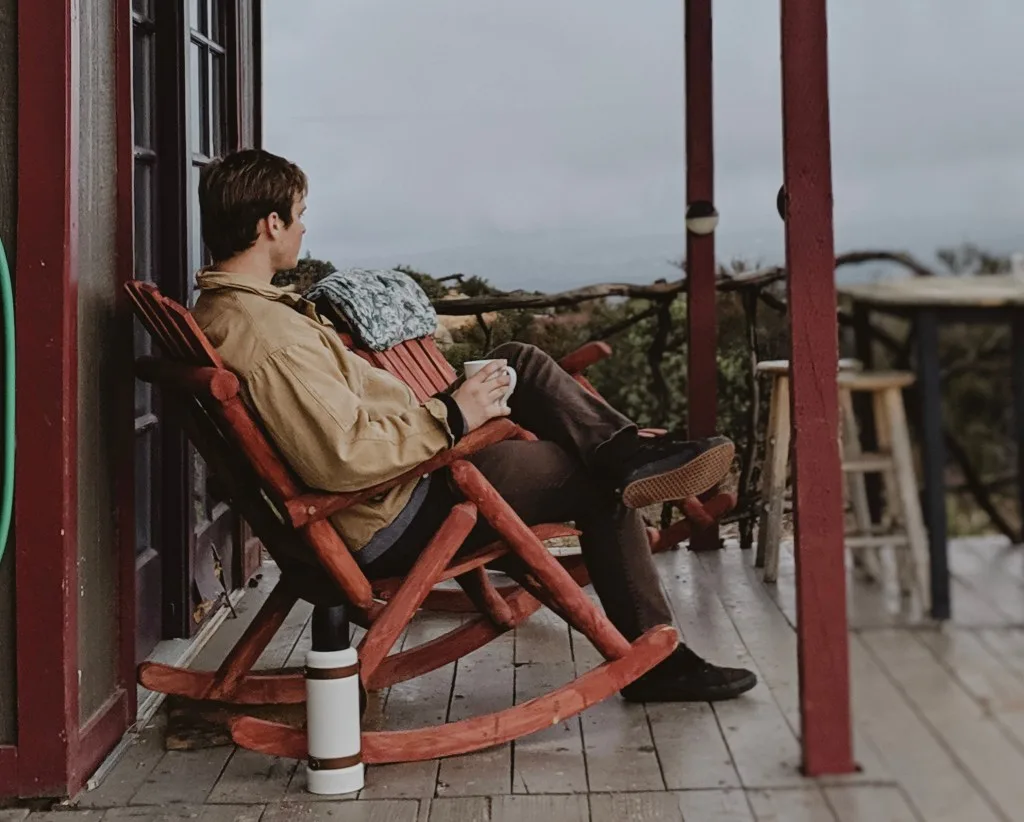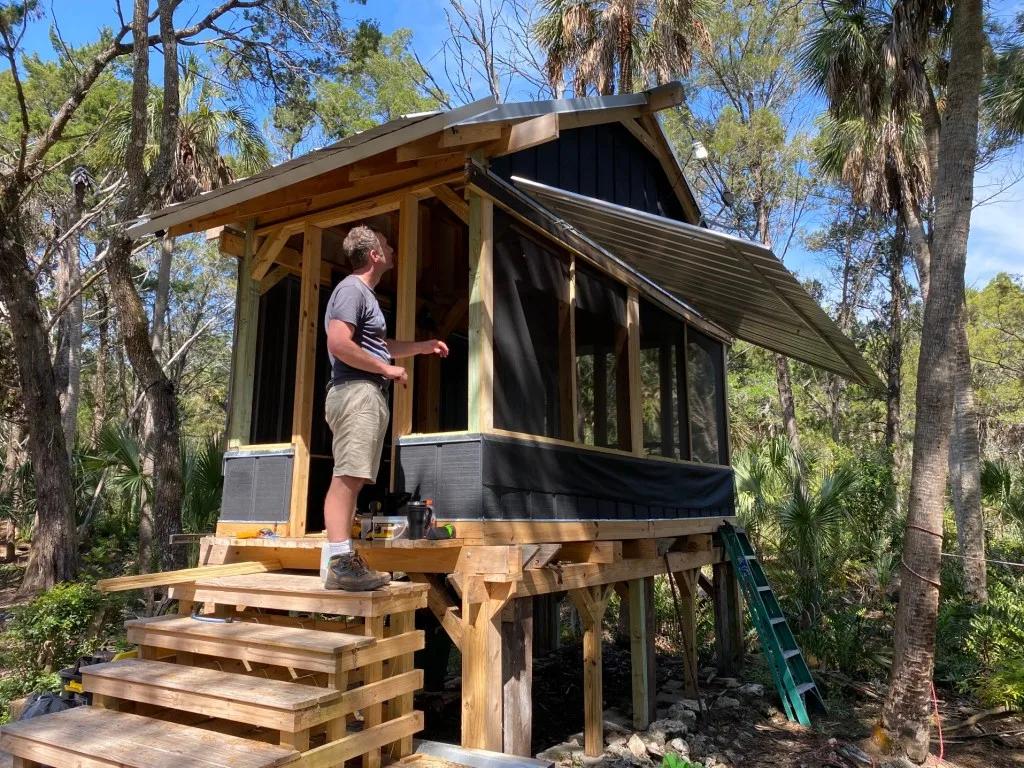Living Off the Grid Isn’t Easy, But There Are Big Benefits
Have you ever dreamed of living off the grid? Choosing a life of self-sustainability over a life of corporate jobs and utility bills sounds so dreamy.
But the off-grid lifestyle is harder than you might think. While there are major benefits to this lifestyle, it’s not for everyone.
Let’s dig deeper!
What Does “Living Off the Grid” Even Mean?
When you hear someone say “off the grid,” the grid usually refers to society. This can mean the electric grid, the cell signal grid, the grid of a city, etc. Typically, living off the grid means a remote, self-sufficient lifestyle. There are many ways to go about this.

Types of Off-Grid Living
There are many types of off-grid living, and each has its own pros and cons. Let’s take a closer look.
Earthships
Earthships are popular and strange-looking homes for living off the grid. These structures literally use earth and what you might consider “trash,” including used glass and plastic bottles, old tires, and more. An earthship is a self-sustaining home that produces power and food and recycles water.
Tiny Homes
The tiny home boom is still booming. And many people are attracted to tiny homes for the potential of living off the grid. Tiny homes are very small houses built on flatbed trailers. These small homes can be off-grid homes by adding solar panels, using a composting toilet, and making other modifications. Tiny homes can move since they’re on a trailer, but most stay stationary.
RVs and other Vehicles
This might sound surprising, but RVs and other vehicles can be off-grid homes, too. Many people live off the grid in RVs, vans, buses, and cars.
Most RVs are self-sustaining for a few days. With a few upgrades and modifications, they can go even longer. DIY camper van conversions and school bus conversions are usually self-sustaining, too.
RVers and vehicle dwellers do have to find fresh water and food unless they live on their own property with a water source and a way to grow or produce food. But in all other aspects, it’s easy to live off the grid in a vehicle.
Pro Tip: Want to test drive off the grid living? Try out one of these RV Rentals That Are Off-Grid Friendly.
Yurts or Tents
Some choose to live in yurts or tents as a way to live off the grid. While some may use a yurt or tent while constructing another off-grid structure, others prefer to use them as full-time homes. Yurts can range from simple tent-like structures to sturdy and even elegant off-grid homes.
Living Off the Grid Isn’t for the Faint of Heart
Living off the grid gets romanticized in popular culture. From movies and reality TV shows to a picture-perfect display of the lifestyle on Instagram, it’s not hard to see why so many people dream of this life.
But it’s not easy by a long shot. Living off the grid means forgoing a life of connection and convenience for a life of constant physical labor. It can be stressful on the psyche and hard on the body. Here are some things you can expect.
Off Grid Means No Standard Electricity
For most, living off the grid means no connection to the power grid. That means you have no standard electricity to power lights, electronics, or literally anything. Most people who live this way have alternative power sources, like solar panels.
A solar setup large enough to sustain this kind of life is incredibly expensive and requires maintenance. You have to be mindful of how you use energy in order to protect sensitive equipment. Depending on how big of a battery bank you have, you may not be able to run large appliances like microwaves, blow dryers, electric heaters, electric cookers, or air conditioning.

You’re Responsible for Your Own Fresh Water
Living off the grid means you’re not hooked up to a public drinking water system. This means you’re responsible for your own drinking and cleaning water. Some people who have a permanent off-grid setup dig a well for drinking water. Others who live nomadic lifestyles or can’t dig a well will have to fetch fresh water from a public source or stream.
You’re Also Responsible for Your Own Wastewater
You have to deal with wastewater, too. Many who choose to live off-grid use a composting style toilet to avoid dealing with sewage. But then there’s the gray water (wastewater from a sink or shower). You can sometimes dump wastewater or filter and reuse it.

You’re Responsible for Your Own Garbage
Living off the grid usually means adapting to a low- or no-waste lifestyle. Plastics don’t break down. A low- or no-waste lifestyle is difficult to adapt to, but many manage to pull it off.
You’re Responsible for Your Own Food Production
Shopping at grocery stores is usually out of the question. Living off the grid usually involves homesteading like raising animals for meat, eggs, and dairy and growing crops. Some off-grid lifestyles like vehicle dwelling still rely on grocery stores or public markets. If you’re growing your own food, you’ll have to protect it from hungry critters, though.
You’re Far From Civilization (Usually)
In order to be free of HOA restraints and land-use restrictions, you need to purchase a remote property. Many who choose to live off the grid would rather be far from civilization as a personal preference, too.
Pro Tip: One way to try out off the grid living is by boondocking. Before you go read up on the 9 Boondocking Myths You Need to Know.

Benefits of Living Off the Grid
There are many benefits of living off the grid. Here are some of the big ones.
No Cost of Living Off-Grid
Yes, you have to pay for the land and the off-grid setup like the house, solar, and water systems. But once it’s built and paid for, you have no cost of living. There’s no rent, no mortgage, and no utility bills to worry about.
You’re No Longer Required to ‘Work for the Man’
If you don’t need to pay bills and you don’t need to buy food, you don’t need money for much. A small amount of savings can last a long time when you live a lifestyle that’s off the grid. There’s no need to have a traditional job, and if you do need to make money, there are other ways that align more with an off-grid lifestyle.

Simple, Peaceful Way of Life
This is a simple and peaceful way of life. It’s a lifestyle of hard work, but it’s free of the distractions and stressors of everyday life.
You’re Prepared for Nearly Any Emergency or Natural Disaster
Most people don’t know how to live a self-sufficient lifestyle. Modern humans who are dependent on modern society don’t know how to produce their own food or live off of the land. Learning to live off the grid teaches you valuable survival skills.
Could You See Yourself Living Off the Grid?
An off-grid lifestyle isn’t easy, that’s for sure. But the benefits outweigh the challenges for many people. Could you see yourself living off the grid? Could you forgo the conveniences of modern society for a life of silence, sustainability, and sunsets?
Choosing an RV-based lifestyle is the best of both worlds. You can be self-sustaining while also enjoying the conveniences of modern-day life, all while traveling if that’s what you choose. If you could see yourself living an off-grid life, let us know in the comments.
We’ll Help You Find the Best Free Camping in the USA
You should give it a try!
As a matter of fact, these free campsites are yours to enjoy. Every time you pay federal taxes, you’re contributing to these lands.
Become a FREE CAMPING INSIDER and join the 100,000 campers who love to score the best site!
We’ll send you the 50 Best Free Campsites in the USA (one per state). Access the list by submitting your email below: